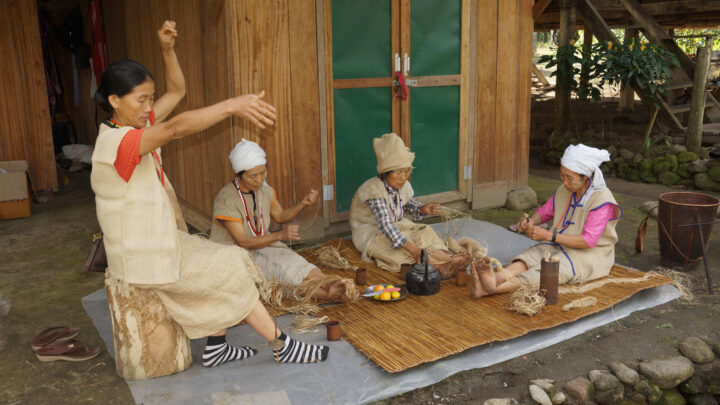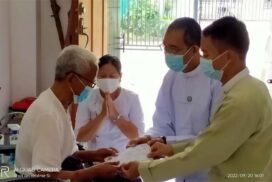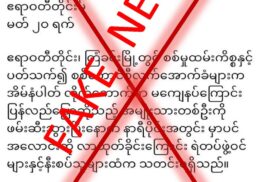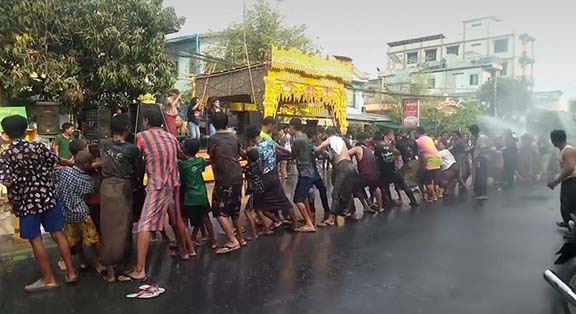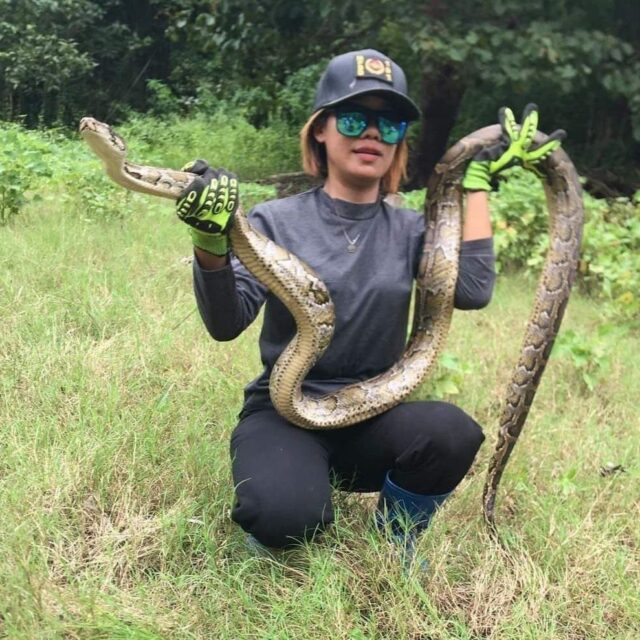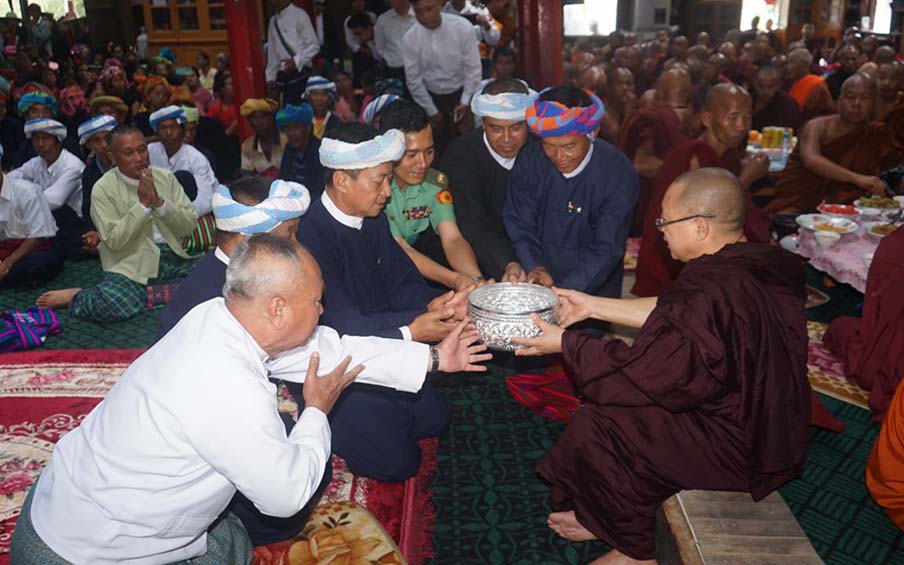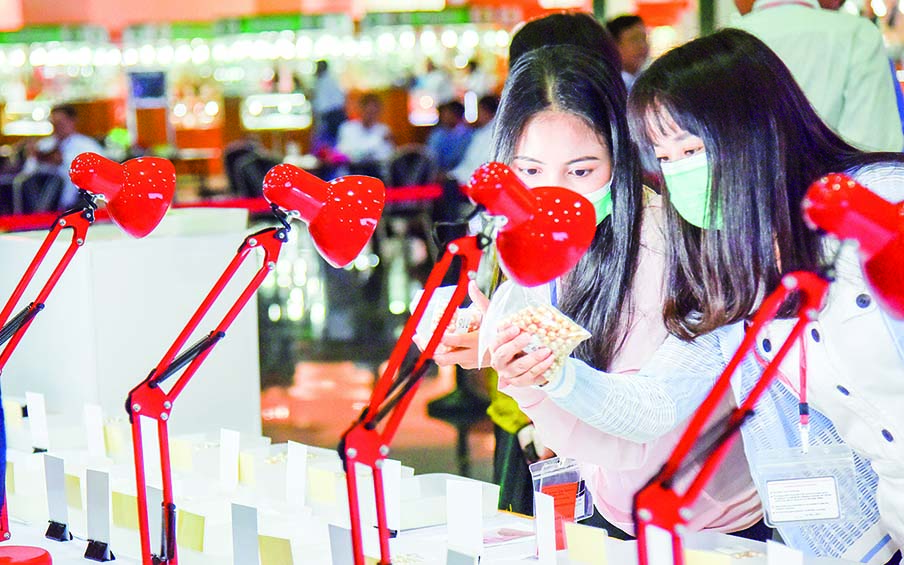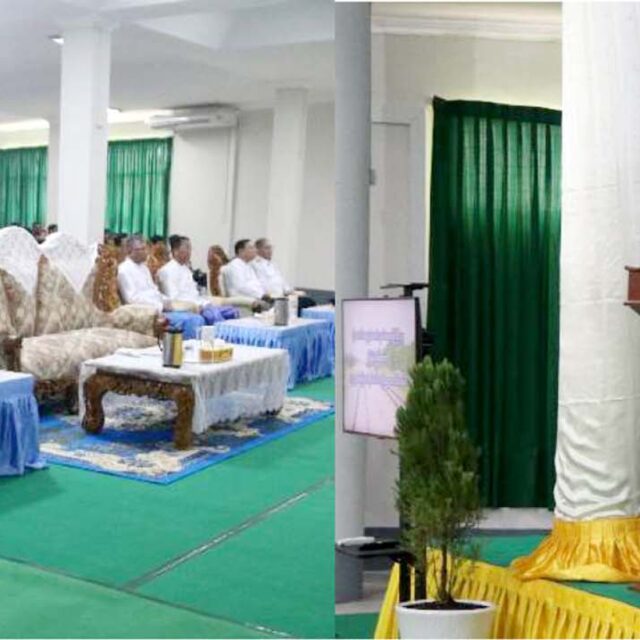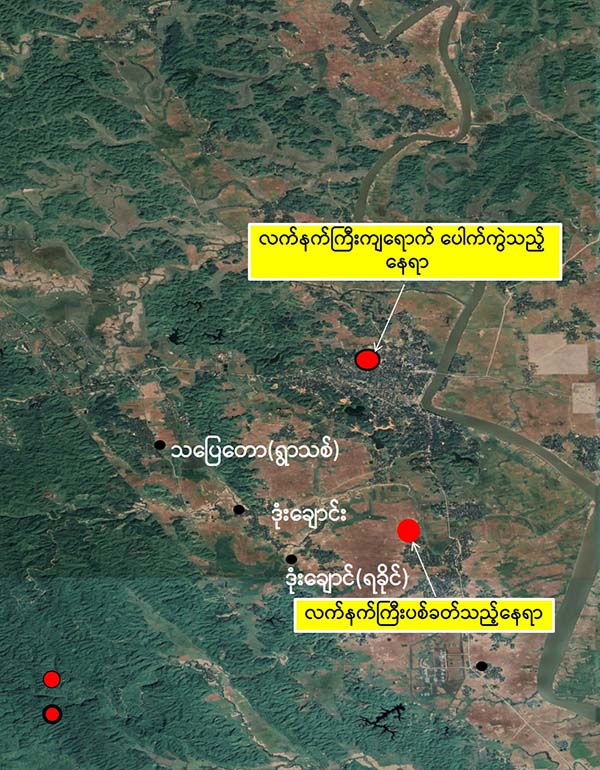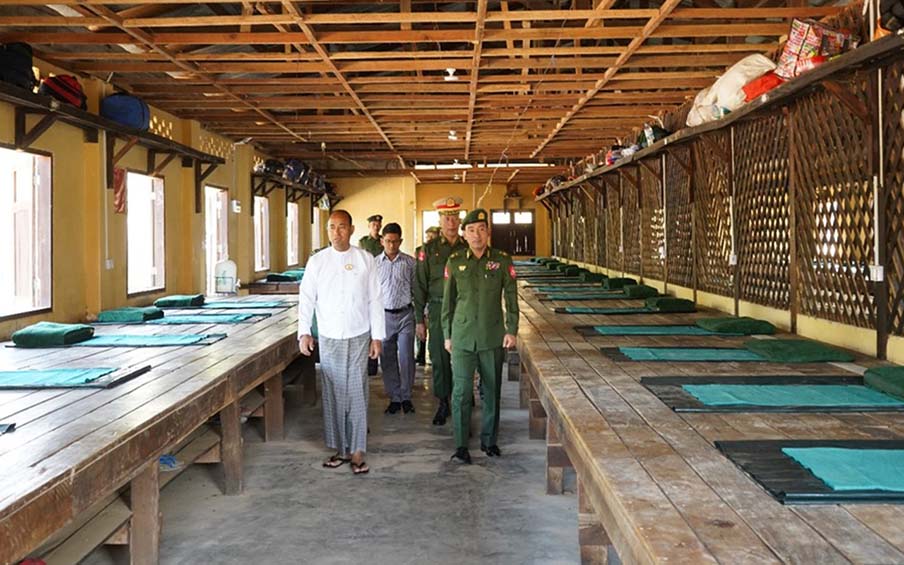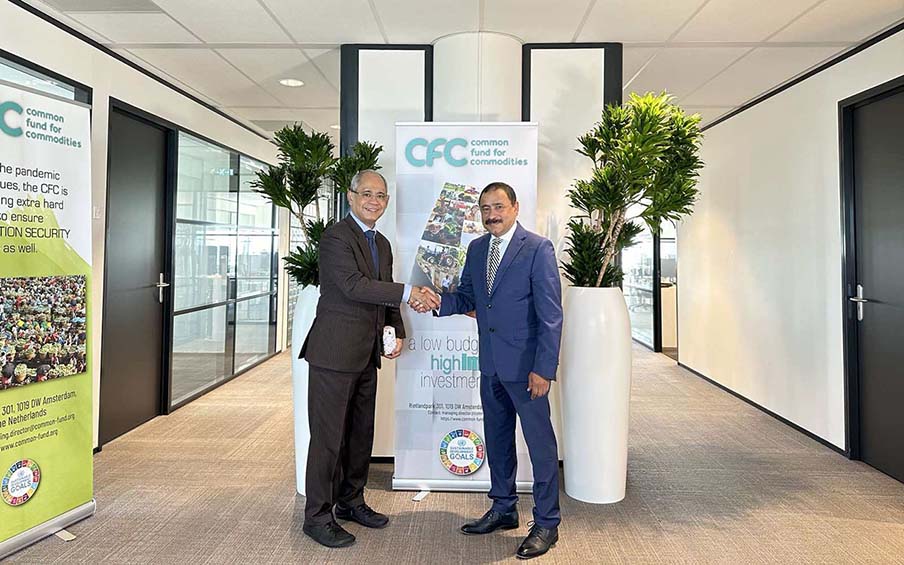By Hponkan (PutaO)
Before presenting about the Rawang people and Azi (aka) hemp, I would like to explain the word “Rawang,” which means a tribe that wears white clothes. The Maru tribe called them Nai Baung. The Chinese called them Kuzi (people living on the bank of the Ayeyawady River). The Kachin and Shan people called them Nung or Khanaung.
They are Tibetan-Myanmar and are included in the Losomuso group. The Rawang people are well-built, have fair complexions, and possess prominent jaws and aquiline noses. Both men and women wear white clothes. The leaders of Nung wear hats made of bamboo and decorated with boar tusks. They carry long spears and knives.
The Rawang people live in the Naung Mon (Kasan Chaung) valley of the PutaO region, the Maykha valley of the Khaunglanphoo region and Khayankhuu at the foot of Mont Khakaborazi. They also reside in the upper parts of Myanmar and along the Tisan, Tamine, Tayone and Inmaikha rivers and lower parts of the Akyan river basin in the PutaO region. They work so hard and do farming, pounding paddy and weaving the whole day. They produce threads from Azi (aka) hemp.
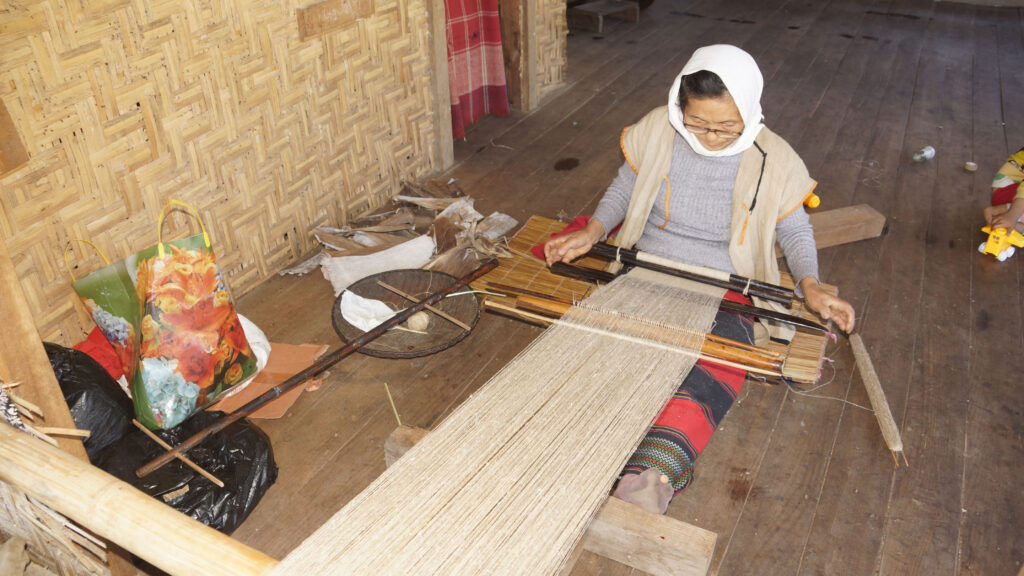
Khalan Village at the foot of the snow-capped mountain
The village is on the road to PutaO-Mount Phonkanrazi, about 30 miles from PutaO. We visited Khalan Village to make a documentary about Azi (aka) hemp, which is used for the clothes of the Rawang people.
The village has 30 houses with 168 people. We must pass Monelan Chaung, Wanghlinedan village, Lonenadan village and Khalan village to get to Ziyadang village, at the foot of Mount Phonkanrazi. We can get there after a five or six-hour ride (motorcycle).
The heart of the Rawang people
The Rawang people wear traditional clothes woven from Azi or hemp plant from generation to generation. “We use a hemp plant for weaving that has been used since our ancestors. It is called Azi in our Rawang language,” said U Sayet Dee, secretary of the Myanmar Rawang Literature and Culture Association.
The threads used in the weaving process of the Rawang people are produced step by step, from raw thread to finished ones. He added that the finished threads are used to make traditional clothes and other materials.
“The Azi plants harvested from the farmlands are soaked in the water and chopped into pieces to get threads. When we get thread, they are fastened, and we dry them in the sun. Then, the raw threads are split to get a bundle of threads. Then, we go step by step. We wrap them with materials called Oh-Sal and Oh-Kha to get compact threads.
Then, we must boil them with clean ash powder for two days to get the finished thread. Then, we dry them, and they can be used to weave traditional clothes, bags, and crossbow strings. We mainly use traditional looms, handweaving.”
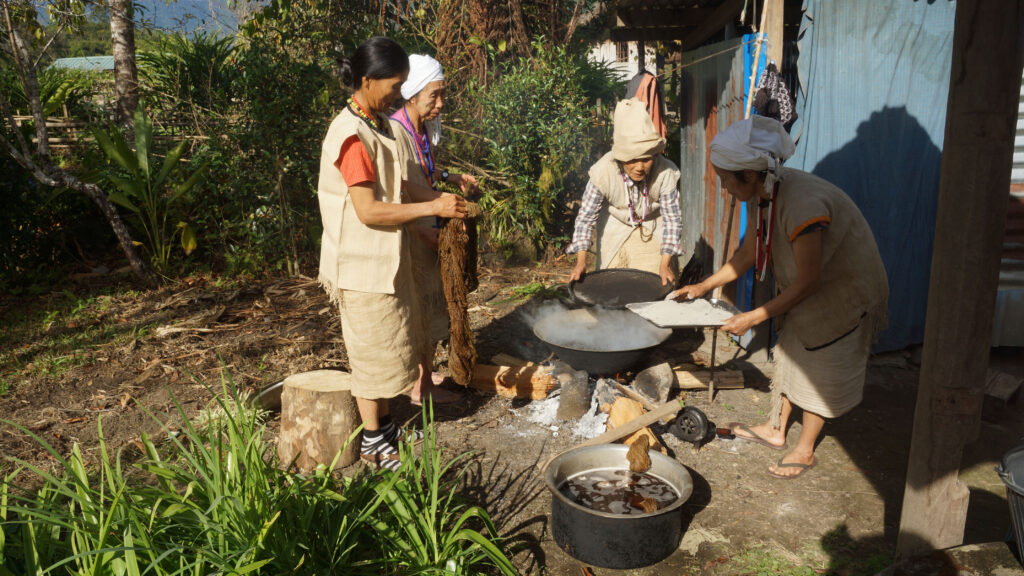
Azi plant season and cultivation
The Azi (aka) hemp plants are grown at 4,000 feet above sea level in February and in low-lying regions in January. He explained that they are harvested in August and September to produce thread while in December for seedlings production.
“These plants are usually grown in the farmland. They are grown in February in the Khalan region at 4,000 feet above sea level but in January in lower parts like Putao Plain. We can harvest them in August and September to produce thread and in December to keep the seeds when they mature. We must bundle them up and keep them in the sun for two weeks. Then, they are soaked in the water, and we peel them and produce thread,” he continued.
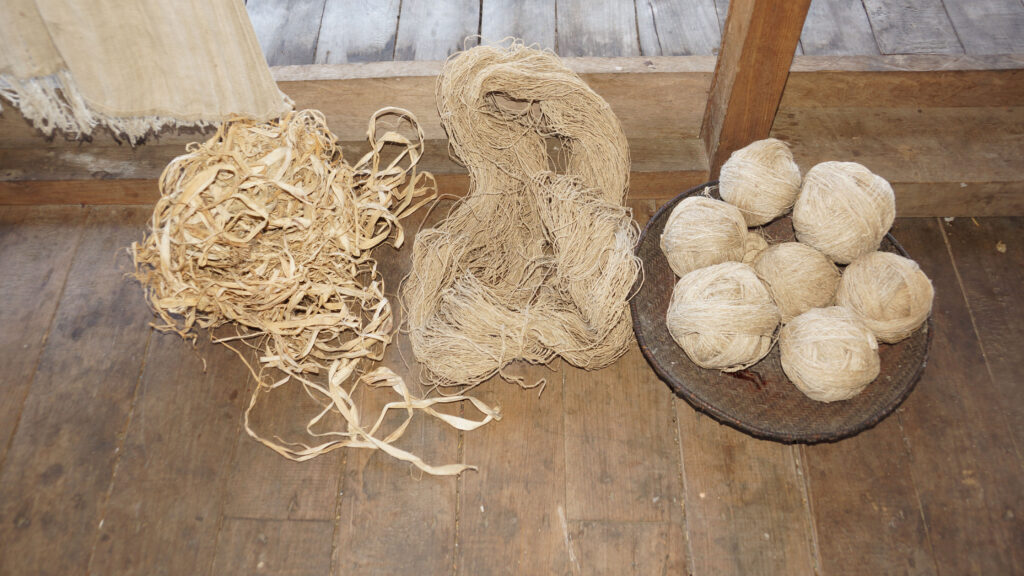
Hemp, family of Cannabaceae
The Azi (aka) hemp plants are prohibited in Myanmar as narcotic drugs, and they cannot be grown officially to weave traditional clothes, U Sayet Dee hesitated about that, showing sadness on his face.
“As our tradition, we have been wearing clothes made of Azi thread since the time of our ancestors. However, it was banned as a drug in Myanmar under the law. Therefore, we cannot grow them officially to weave our clothes,” he said.
The Agriculture, Livestock and Rural Development Committee of Pyithu Hluttaw tried to amend the currently existing Narcotic Drugs and Psychotropic Substances Law in 2019 to legalize the plantation of Industrial Hemp, which is a type of cannabis plant. Industrial hemp contains only 0.3 per cent tetrahydrocannabinol (THC), and the Ministry of Home Affairs made an initial comment to add to the Narcotic Drugs and Psychotropic Substances Law without recognizing them as cannabis plants at that time.
Currently, hemp plants are grown legally in 57 countries, including China, Thailand, Europe, and the US. Some also grow for commercial purposes.
Stand with the Rawang people
It is a dream of the Rawang people to cultivate Azi (aka) hemp freely, which is described as part of the heart of the Rawang people, as it has been worn as a traditional garment since their ancestors. We also wish for honest Rawang people to make their dreams come true quickly.
Translated/KTZH
Join Our Telegram Channel https://t.me/GNLMNews

